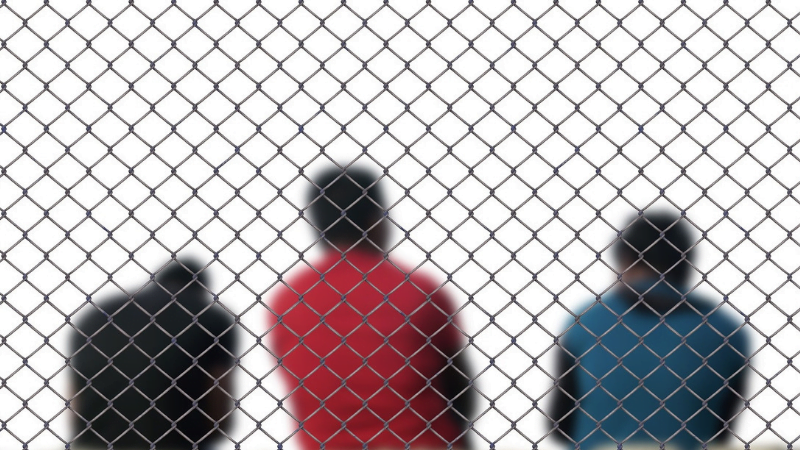This is a guest post by Martin Cauchi Inglott
NGO vessels operating off Libya are saving life, as exemplified in the most recent Sea Watch 2 incident, where 49 irregular migrants were saved, but only after being left to face the bitter elements for close to three weeks.
Though similar incidents have occurred in the past, this particular case hit the headlines forcefully, because it happened over the Christmas holidays, a period during which Europe is meant to reflect on its founding values – solidarity and humanity – but failed, and only began tackling the matter after returning to office in the New Year.
So why are we in this situation? Though Malta has been faced with migratory pressures for close to two decades, serious attention was given to the phenomena in Brussels after an incident off Lampedusa claimed more than 360 lives in 2013, which led to a public outcry, pushing politicians to deploy navies for rescue operations miles off the Libyan coastline.
This knee jerk reaction, though effective, also induced a pull factor, and migration tripled in ensuing months. Navies later withdrew, and NGO vessels filled the void, leading to the inevitable dilemma as to where migrants rescued should be disembarked.
So why is disembarkation of migrants such a sensitive matter? The current EU asylum policy (Dublin II) dictates that Member States receiving asylum applications are obliged to care for the rescued migrants until their case is closed.
If granted asylum, Member States are then obliged to cater for the refugees’ needs, probably forever, as refugees are obliged to reside in the same EU country which gave the asylum. This implies that the southern Member States generally carry the refugee burden, more than often alone, as the EU has been unable to introduce fair burden-sharing mechanisms over the past decade.
Why are Malta and Italy regularly at odds over disembarkation? Libya is the only North African country with porous borders since its fragmented government is unable to control human traffickers channelling African migrants through Libya, with the aspiration of organising crossings to Europe.
Since Malta and Lampedusa offer the closest safe havens, both countries are the logical destinations for smugglers, and NGOs, who have the ultimate goal of bringing migrants to Europe, illegally or legally.
Now Malta abides by the international law that dictates that rescued persons should be disembarked in the closest safe haven, and has consistently abided by this principle for decades, as is evident when it saved 251 migrants less than three weeks ago.
Malta also believes that it is legally responsible for coordinating rescue operations in its area of responsibility, which extends to about 90 miles south of the Malta, and about 12 miles off Tunisia, implying that Lampedusa lies within the Maltese zone.
Italy, conversely, deems that the country responsible for coordinating migrant rescue operations should also be responsible for disembarking rescued persons. These conflicting interpretations of international law lead to the frequent stand offs at sea.
Why did Malta delay the disembarkation of the last 49 migrants? Serious problems occur when migrants are rescued in the Libyan area of responsibility by NGOs, because disembarking refugees in Tripoli is not possible since Libya is not a safe country in terms of international law (Geneva Convention).
Conversely, Malta and Italy cannot be expected to take in all migrants rescued off the Libyan coastline, because it could imply that both countries would assume responsibility for these migrants, instigating dangerous and unsustainable precedents.
Are NGO operations off Libya the solution? No, certainly not. On the one hand there is the indisputable fact that NGO vessels are saving lives. But NGO vessels are also obliged to switch on their transponder, making their vessel’s position visible to all, including migrant smugglers ashore.
This implies that smugglers now need to make migrant boats safe enough to travel 24 miles, rather than cross the Mediterranean, and is probably why we sometimes see cadavers washed ashore on Libyan beaches.
So what is the way forward? Solving single incidents on an ad hoc basis will not solve the migration challenge, so the EU must conclude negotiations among its Member States, Libya, and migrants’ countries of origin, especially on the following elements:
Cooperating with Libya to prevent irregular departures, including through the establishment of Asylum Processing Centres in Libya.
Improving asylum processing procedures so that migrants who do not warrant international protection are returned to their country of origin.
Concluding readmission arrangements with countries of origin to facilitate repatriation operations.
Enabling migrant repatriation operations by strengthening the European Border and Coast Guard.
To conclude, Malta needs to be tough on migration given our precarious position between Africa and Europe, our minute size, and the Dublin II Convention. But the government cannot act in an inhumane manner as witnessed in the recent Sea Watch incident.
A balance needs to be found and this must be through Brussels. After working in the field for over two decades, and studying the subject closely, I contend that this is possible if there is the political will for this to happen, and the drive to push actions through.
The Shift News is providing the space for MEP candidates who are not running under the umbrella of the two main political parties to inform citizens of their stand on various issues. This is to address the democratic deficit created by political party ownership of the media in Malta. The Shift does not necessarily endorse the views published.













